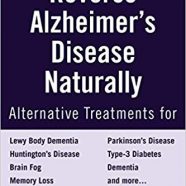
For those who have never heard of Type 3 Diabetes, it refers to Alzheimer’s Disease in addition to other types of dementia. Type 3 Diabetes is caused by imbalances with blood sugar and insulin problems such as insulin resistance. Also read further to see if your day to day drugs are causing dementia and brain damage.
A main factor and outcome associated with the development of Alzheimer’s, is the brain shrivels up like a sponge from a lack of key fats and essential nutrients – it is simply not being fed!
Groundbreaking research is showing that blood sugar problems can lead to the plaques associated with Alzheimer’s, as well as other brain issues.
In my recent book Reverse Alzheimer’s Disease Naturally includes full reversal protocols – step-by-step, for the most problematic dementia diseases. You will also learn why medications for these diseases are overall ineffectual. And any benefits noticed in the first several months dissipate shortly after, never to return again.
Dr. Beaufield M.D., who wrote the foreword for this book, lost both of his parents to Alzheimer’s Disease and was all too aware of the limitations of his profession.
Key strategies are outlined in the book for returning to full cognitive function.
What to watch out for with Type 3 Diabetes
- How is your weight in your mid-section – would you describe yourself as being overweight
- In routine doctors office visits, has your sugar levels been high or on the high side of normal
- High triglycerides is associated with high sugar levels
- Is your cholesterol high, this shows a complete lack of essential fatty acids (which also can lead to diabetes) – omega 3’s that produce your good cholesterol – HDL
- Medications: are you taking any of the below mentioned drugs
What Medications Cause the Most Brain Damage?
Certain Medications that many people routinely take on a daily basis are directly related to brain damage. The worst of these and their negative brain impact can be found in my newly released book ‘Reverse Depression Naturally’. Depression and even the most severe mood disorders like Schizophrenia and Bipolar can be fully turned around and patients brought back to a better state than before they were diagnosed. How to and Case Histories – all the steps taken in their reversal process.
Common Medications That Cause Dementia
Prescription medications are not exempt from causing brain dysfunction. A few medications have even been spotlighted as causing an increased risk—as high as 54 percent higher—for the development of dementia.
Why are these drugs such a problem? Because these medications store themselves in our body fat, as we age the processing and detoxifying of drugs slows down due to the health of our liver and kidneys. These drugs will continue to accumulate, resulting in an increased occurrence of side effects until one stops taking them for a protracted period of time.
Worse, many of the worst offenders are being taken on a regular basis. Now, add to this scenario the lack of nutrition being received by the brain, and you have a recipe for health disaster.
Common Drugs Block the Neurotransmitter Acetylcholine
Drugs commonly prescribed for the treatment of anxiety and sleep problems, as well as antihistamines, have as an unfortunate side effect—the blocking of neurotransmitter activity. Neurotransmitters are the chemical messengers of our central nervous system; when they aren’t functioning properly, our body can’t direct its activities the way it should. In particular, acetylcholine is necessary for the processes of learning and memory, and is involved in blood vessel contraction, digestion, circulation/cardiovascular and autonomic nerve stimulation.
For this reason, antidepressants, antihistamines, sleeping pills and incontinence medications have the largest negative brain deficit effect. At the top of the categories listed, benzodiazepines (for anxiety, depression and sleep) and anticholinergics (group for allergies and colds) are the worst, increasing your risk of dementia significantly, closely followed by blood pressure and incontinence medications and statins. (1,2,3,4)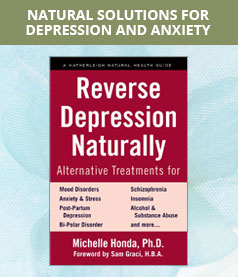
Signs of insulin resistance and lesser brain function than once was are all symptoms of dementia that leads to Alzheimer’s. It is a huge mistake to ignore these problems and symptoms.
The Brain Can Be Restored and Healed
The brain along with the body has an amazing capacity to heal. It’s rarely too late to enhance mental performance and optimize our brain health as is revealed and outlined in Reverse Alzhiemers Disease and Dementia book.
Reverse Depression Naturally aims to help anyone who is seeking to treat their depression symptoms without the use of harmful pharmaceuticals and chemicals, preferring instead natural supplements and healthful self-care practices. Written for those on the path to healing and for those who’ve tried everything without success.
- JAMA Intern Med. 2015 Mar;175(3):401-7. doi: 10.1001/jamainternmed.2014.7663.
Cumulative use of strong anticholinergics and incident dementia: a prospective cohort study.
Gray SL1, Anderson ML2, Dublin S3, Hanlon JT4, Hubbard R5, Walker R2, Yu O2, Crane PK6, Larson EB7. https://www.ncbi.nlm.nih.gov/pubmed/25621434 - Shelly Gray, PharmD, MS. Anticholinergics and Risk of Dementia, School of Pharmacy University of Washington. http://depts.washington.edu/uwconf/eff/resources/5GRAY_ACTalkEFF.pdf
- Daniel M I Britt1,2 and Gregory S Day, MD, MSc, FRCPC1,3. Over-Prescribed Medications, Under-Appreciated Risks: A review of the cognitive effects of anticholinergic medications in older adults. https://www.ncbi.nlm.nih.gov/pmc/articles/PMC5125613/
- Beverly Merz. Common anticholinergic drugs like Benadryl linked to increased dementia risk—Harvard Health Blog, Updated May 23, 2017. http://www.health.harvard.edu/blog/common-anticholinergic-drugs-like-benadryl-linked-increased-dementia-risk-201501287667
Copyright © 2021 – All Rights Reserved – Michelle Honda Ph.D.
Announcement
Look for my new forthcoming books “Reverse Depression Naturally” (Spring 2020) “Reverse Inflammation Naturally” (May 31, 2017) “Reverse Thyroid Diseases Naturally” (June 2018) “Reverse Alzheimers/Dementia Naturally” (Nov.2018) “Reverse Heart Disease Naturally” (Jan.31, 2017) and “Reverse Gut Diseases Naturally Nov. 2016
Where to Purchase:
Reverse Gut Diseases Naturally Nov. 2016
Reverse Heart Disease Naturally Jan. 2017
Reverse Inflammation Naturally May 2017
Reverse Thyroid Disease Naturally June 28/2018
Reverse Alzheimers Disease Naturally Nov. 2018
Reverse Depression Naturally Spring 2020
Hatherleigh Press Page Buy Book RGDN
Local Book Stores in US and Canada
Disclaimer
While close attention was given to the accuracy of information in this article, the author accepts neither responsibility nor liability to any person with respect to injury, damage, loss or any circumstances involving alleged causes directly or indirectly related to the information in this article. The sole purpose is to educate and broaden ones awareness. This information is not meant to replace medical advice or services provided by a health care professional.





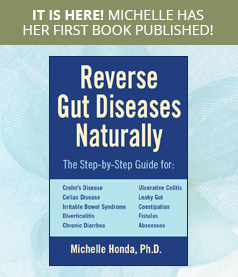


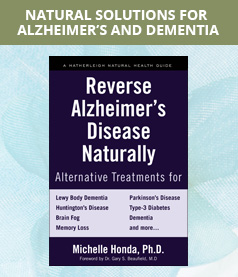
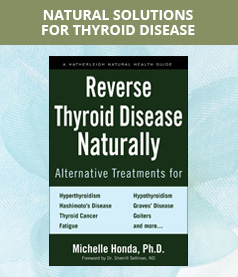

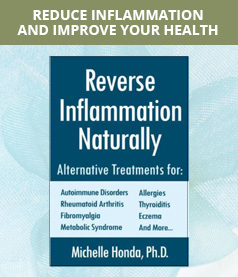
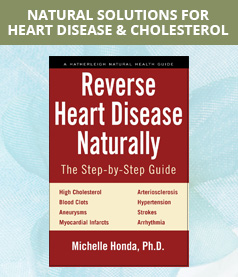
Follow Us!